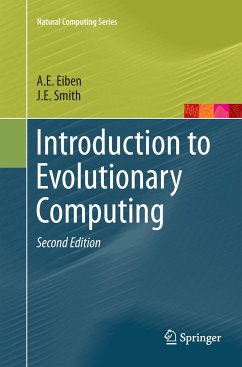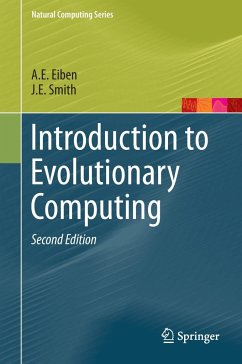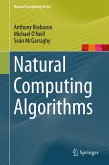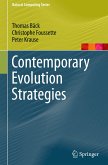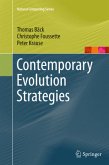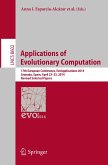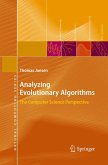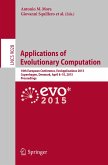The overall structure of this new edition is three-tier: Part I presents the basics, Part II is concerned with methodological issues, and Part III discusses advanced topics. In the second edition the authors have reorganized the material to focus on problems, how to represent them, and then how to choose and design algorithms for different representations. They also added a chapter on problems, reflecting the overall book focus on problem-solvers, a chapter on parameter tuning, which they combined with the parameter control and "how-to" chapters into a methodological part, and finally a chapter on evolutionary robotics with an outlook on possible exciting developments in this field.
The book is suitable for undergraduate and graduate courses in artificial intelligence and computational intelligence, and for self-study by practitioners and researchers engaged with all aspects of bioinspired design and optimization.
The book is suitable for undergraduate and graduate courses in artificial intelligence and computational intelligence, and for self-study by practitioners and researchers engaged with all aspects of bioinspired design and optimization.
"This book aims to give a thorough introduction to evolutionary computing, covering techniques and methodological issues. ... the book does a good job of giving a general overview of the field. It assumes very little initial knowledge and the breath of its coverage is very impressive. ... the supporting website does contain suggested further reading for each of the chapters." (Barry Wilkes, bcs The Chartered Institute for IT, bcs.org, May, 2016)
"This second edition of the book under review is very timely and corresponds to Evolutionary Computation (EC)'s status as an established methodology. ... The chapter subdivision into different algorithms used in the first edition ... has been replaced by a more suitable student/researcher-oriented approach; this is also supported by the website www.evolutionarycomputation.org, which contains a trove of exercises, slides and extra bibliographic references." (Anna I. Esparcia-Alcázar, Mathematical Reviews, May, 2016)
"Introduction to Evolutionary Computing is an excellent and readable text that should find a place on the bookshelf of anyone who researches and/or teaches in this domain. Suitable for a graduate course or upper-level undergraduate course in Evolutionary Computing, it is also a superior and well-organized reference book. ... papers and presentations cited in the text provide a marvelous literature review. ... The clarity of exposition and detail are excellent ... ." (Jeffrey L. Popyack, Genetic Programming and Evolvable Machines, Vol. 17 (2), 2016)
"This second edition of the book under review is very timely and corresponds to Evolutionary Computation (EC)'s status as an established methodology. ... The chapter subdivision into different algorithms used in the first edition ... has been replaced by a more suitable student/researcher-oriented approach; this is also supported by the website www.evolutionarycomputation.org, which contains a trove of exercises, slides and extra bibliographic references." (Anna I. Esparcia-Alcázar, Mathematical Reviews, May, 2016)
"Introduction to Evolutionary Computing is an excellent and readable text that should find a place on the bookshelf of anyone who researches and/or teaches in this domain. Suitable for a graduate course or upper-level undergraduate course in Evolutionary Computing, it is also a superior and well-organized reference book. ... papers and presentations cited in the text provide a marvelous literature review. ... The clarity of exposition and detail are excellent ... ." (Jeffrey L. Popyack, Genetic Programming and Evolvable Machines, Vol. 17 (2), 2016)

